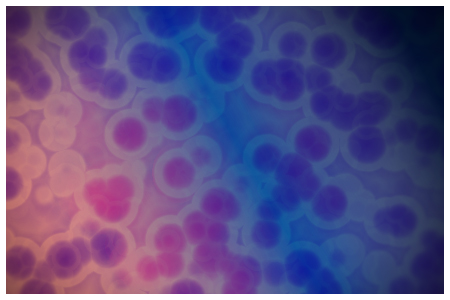Webinar: Targeting Oxygen Sensing in Cancer

During the webinar, viewers will:
- Understand the current molecular oxygen-sensing framework in human cancer cells
- Hear a summary of the molecular and clinical implications of tumor hypoxia
- Explore recent evidence suggesting novel chemotherapeutic strategies targeting HIFs
- Have the opportunity to ask questions during the live broadcast
Key publications:
- Schito, L. et al. (2020) EMBO Mol Med 12: e11416 (PMID: 32686360)
- Schito, L. & Rey, S. (2018) Trends Cell Biol 28: 128-142 (PMID: 29191366)
- Schito, L. & Semenza, G.L. (2016) Trends Cancer 2: 758-770 (PMID: 28741521)
 |
Hypoxia signaling in the tumor microenvironment Sergio Rey, M.D., Ph.D. |
||||
|
Dr. Rey is an Ad Astra Fellow and Assistant Professor of Medicine at University College Dublin, Ireland, with more than two decades of experience dedicated to the delineation of molecular mechanisms enacting oxygen sensing in human health and disease. He received separate MD and PhD degrees by the Pontifical Catholic University of Chile, subsequently engaging in back-to-back postdoctoral training with Dr. Gregg L. Semenza and Dr. Bert Vogelstein at the Johns Hopkins University School of Medicine. His overarching long-term aim is to deconvolve the molecular machinery underlying cellular and organismal responses to hypoxia as a pathobiological scaffold guiding cancer progression. |
|||||
 |
Hypoxia as a driver of cancer metastasis Luana Schito, M.Sc., Ph.D. |
||||
|
Dr. Schito is an Ad Astra Fellow and Assistant Professor of Pathology at University College Dublin, Ireland, with a longstanding research focus in the adaptive responses of cancer to hypoxia. She obtained her PhD in Human Pathology from the University of Rome Sapienza while carrying out her thesis with Dr. Gregg L. Semenza at the Johns Hopkins University School of Medicine. She pursued postdoctoral research training at the Johns Hopkins University and Princess Margaret Cancer Centre, Toronto. Her research interest is to understand the role of hypoxia as an organizing molecular principle in the pathophysiology of cancer and metastasis. |
|||||
 |
MODERATOR Raymond Chan, M.Sc., Ph.D. |
||||
|
Dr. Ray Chan is an Antibody Product Manager for the Novus Biologicals and R&D Systems brands at Bio-Techne. He received his Ph.D. from the University of Cambridge in Neuro-oncology and a M.Sc. from the University of Edinburgh. He has held positions at the Medical Research Council and at biotech organizations in Oxford and Cambridge. |
|||||
